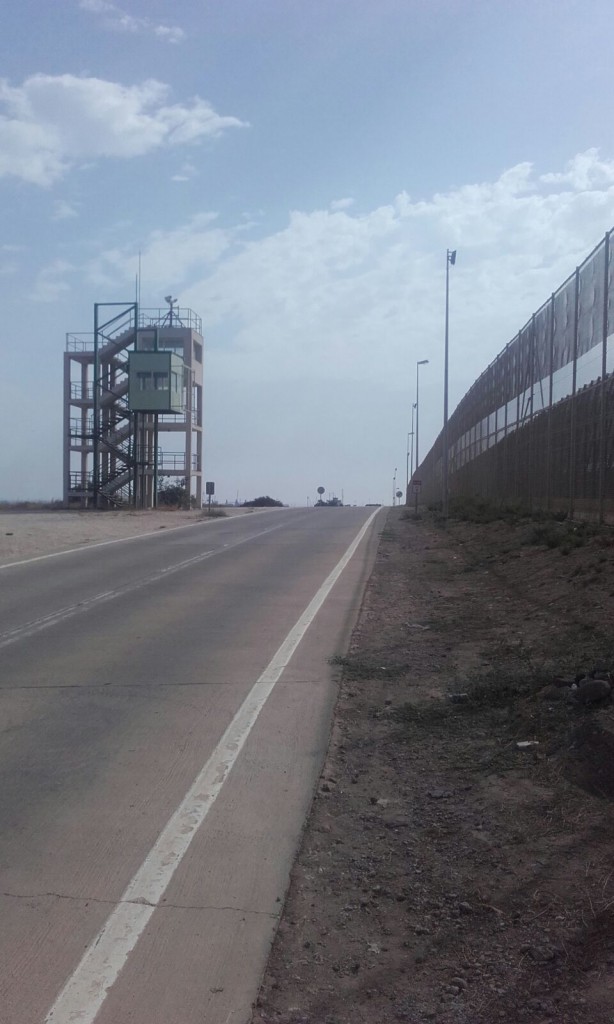Melilla: Europe in Africa
By Ella Daniels
I got used to the stares in the supermarket – a student told me, without any embarrassment, that it was because they couldn’t understand how I could be so clean and afford food.
Women from Morocco struggle in the streets in central Melilla, dragging petulant, spoilt Spanish children behind them. They are paid well, ‘for Morocco’, but something in me still bridles when I see darker women paid to do the shitty, difficult, mundane work, that whiter, richer women don’t want to do. It reminded me of my time as a nanny. Most of the men work hard, in the streets. Some sway constantly, forever under the influence. They bag the shopping in supermarkets, and carry it out to very expensive cars.
I was told, early on, that anyone “darker than a Moroccan” was considered to be there illegally, and would be treated as such. I got used to the stares in the supermarket – a student told me, without any embarrassment, that it was because they couldn’t understand how I could be so clean and afford food. For them, black meant only one thing, one way. I quickly became very snappy, as I was repeatedly asked “are you sure you are the teacher?” I tried to steady my hands, shaking with anger, as students whispered about expecting someone ‘native’.
I stopped eating out in restaurants and bars. It was difficult to get served, more difficult than it had been in mainland Spain. I noticed that when I sat at a bar with my European colleagues we were served. When I was alone I had to order at the bar. But that wasn’t the reason I stopped going. I couldn’t eat and drink and enjoy myself whilst skinny, dirty, bruised, and visibly stoned pre-pubescent boys begged me for food. I was told by others that it was a ploy, that they had a place to go, a place with beds and food. There is a detention centre, there is a residency for the young boys who survive in Melilla without guardians. But I can understand why they might not want to go there. I watched as others ignored them and chased them away. I couldn’t bring myself to do the same.
I saw how the African boys, who had traversed the fence and managed to remain, washed in the sea and travelled in large groups, never alone. This last part reminded me of home, and I remembered how the teenage boys at my college had done the same – safety is found in numbers. They stared at me, like a lot of people did, but not with fear, hostility or aggression. They were curious, but anxious to avoid problems, any problems, and so, for the first time in my adult life, I was stared at sans comment, without whistle or provocation. I don’t know their histories, if they were considered good or bad in the places they originated from, it’s impossible for me to infer. As with any person or people you see in the street or meet briefly, it’s difficult to tell the morality, the ethics of people. The difference between me, and so many in Melilla, is that I didn’t assume criminality, delinquency or mal-intent, purely because of the darkness of their skin.
I couldn’t and didn’t socialise with the people I met – the Guardia Civil, and the soldiers. For me, it was impossible, knowing that any night it could be them, beating a boy on a fence, dragging him down, barefoot but determined.



